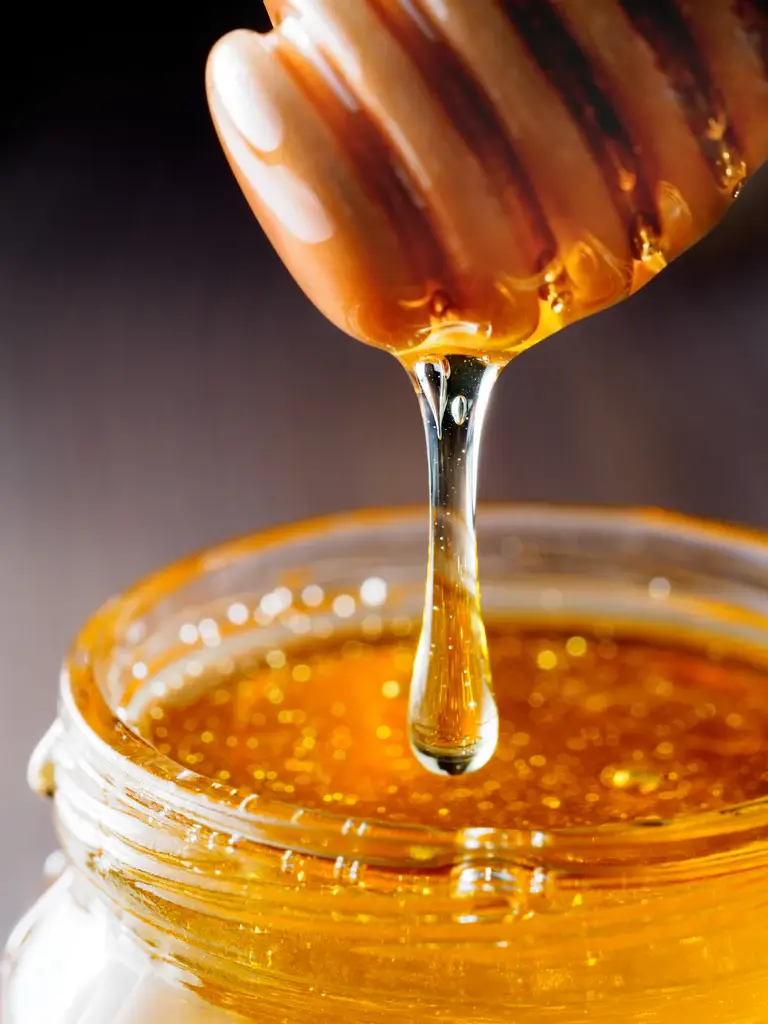The Top Questions People Have About Honey
Honey has been used for centuries, both for its sweet taste and its natural health benefits. Whether you’re using it as a sweetener or a remedy for sore throats, honey is a versatile and nutritious food. But with so many types and uses, it’s common to have questions about this golden nectar. Here are the most frequently asked questions about honey and everything you need to know.
1. What is honey made of?
Honey is a natural substance produced by bees from the nectar of flowers. It primarily consists of sugars such as fructose and glucose, with water, trace amounts of vitamins and minerals, and antioxidants. The nectar is collected by bees, transformed through an enzymatic process, and stored in honeycombs. It’s nature’s sweet treat!
2. Is honey better than sugar?
Yes, in many ways, honey is considered a healthier alternative to refined sugar. Unlike processed sugar, honey contains trace amounts of vitamins, minerals, and antioxidants that sugar lacks. However, both honey and sugar are high in calories, so moderation is key. While honey may offer more nutritional value, it should still be consumed sparingly.
3. Is honey safe for children?
While honey is safe for most people, it should not be given to babies under 1 year old. Honey can contain spores of a bacterium that causes botulism, a rare but serious illness in infants. For children over the age of 1, honey is safe and can even provide health benefits.
4. Can honey help with allergies?
Some people believe that consuming local honey can help reduce allergy symptoms, as it may build immunity to local pollen. However, scientific research on this is limited. While eating small amounts of local honey may provide some relief for certain individuals, it isn’t a guaranteed treatment for allergies.
5. How should I store honey?
Honey should be stored in a cool, dry place, away from sunlight. It’s best to keep it in a sealed container to prevent moisture from entering, which could affect its quality. Properly stored honey can last indefinitely without spoiling.
6. Does honey ever expire?
No, honey does not expire. Its natural properties, such as low moisture content and acidic pH, make it resistant to spoilage. However, over time, honey may crystallize, but this is a natural process. Crystallized honey is still safe to eat; you can simply warm it up to return it to its liquid state.
7. What are the health benefits of honey?
Honey is more than just a sweetener. It offers numerous health benefits, such as:
- Rich in antioxidants: Honey contains antioxidants that can help protect your cells from damage caused by free radicals.
- Antibacterial properties: Honey can naturally fight bacteria, which is why it’s often used for wound healing and soothing sore throats.
- Energy boost: Honey’s natural sugars provide a quick source of energy.
- Digestive aid: It can promote better digestion and support the balance of good bacteria in the gut.
8. What is raw honey?
Raw honey is honey that has not been pasteurized or filtered. It retains more of the beneficial nutrients, enzymes, and antioxidants that are removed during processing. If you’re looking for the healthiest option, raw honey is the way to go, as it contains the most natural benefits.
9. Can honey be used for skin care?
Absolutely! Honey is known for its moisturizing and antibacterial properties, making it an excellent ingredient for skincare. It can be used as a natural face mask to hydrate the skin, reduce inflammation, and even help with acne. Its antibacterial properties also make it effective for soothing cuts and burns.
10. Is honey good for weight loss?
While honey is a better alternative to refined sugar, it’s still high in calories, so it should be used in moderation. Some people believe that honey can support weight management by providing a natural source of energy and helping regulate blood sugar levels. However, it is not a miracle weight-loss solution and should be part of a balanced diet and healthy lifestyle.
11. Why does honey crystallize?
Crystallization occurs when honey’s glucose content forms crystals over time. This is a completely natural process and does not mean the honey has gone bad. In fact, crystallized honey is just as good as liquid honey, and you can easily return it to its liquid form by gently warming it.
12. How much honey is safe to consume daily?
Moderation is key when consuming honey. Health experts recommend consuming about 1 to 2 tablespoons of honey per day as part of a healthy, balanced diet. While honey offers some health benefits, it’s still a form of sugar, so it’s important not to overdo it.
13. Can honey help with a sore throat or cough?
Yes, honey is a popular natural remedy for sore throats and coughs. Its antibacterial properties help fight infection, and its soothing texture can provide relief. Simply take a spoonful of honey on its own or mix it with warm water or tea for extra comfort.
Conclusion
Honey is much more than a delicious natural sweetener. Whether you’re using it for its health benefits, skin care properties, or simply adding it to your tea, honey is a versatile and beneficial food. With so many varieties and uses, it’s no wonder people have so many questions about this liquid gold. Now that you have answers to some of the top queries, you can enjoy honey even more, knowing all the incredible ways it can improve your health and well-being.
Feel free to share this blog and spread the sweetness of honey!
